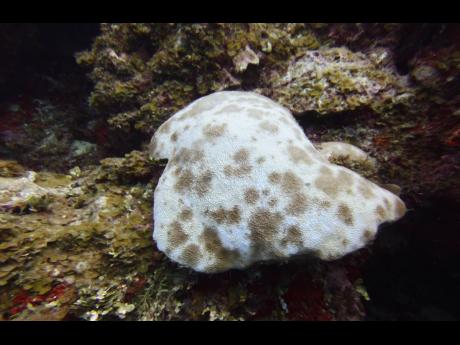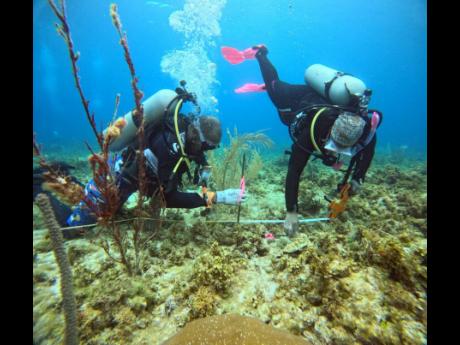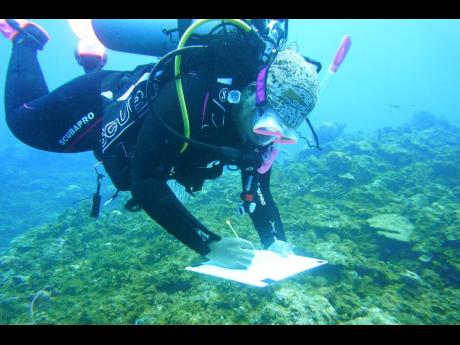CoralCarib survives Beryl and presses ahead
WESTERN BUREAU:
While grateful that the passage of Hurricane Beryl did not dampen its CoralCarib project in Portland, Anna Ebanks-Chin, marine conservation programme manager at Nature Conservancy, is hoping that more Jamaicans will play a role in preserving the island’s coral reefs.
“There was minimal damage to the corals, luckily. I think because the hurricane hit closer to the south coast side, but what we have is kind of a holistic approach to the restoration of reefs,” Ebanks-Chin said during a recent interview with The Gleaner.
CoralCarib was launched in April 2023 through a partnership with Nature Conservancy, a nonprofit international non-governmental organisation (NGO), and the Alligator Head Foundation. Funded by Germany’s International Climate Initiative, it is expected to run for six years. Its focus currently is on the restoration of coral reefs in east Portland.
MANAGING MARINE PROTECTED AREAS
The project is being executed in three additional countries; Cuba, Dominican Republic, and Haiti. In addition to coral reef restoration, CoralCarib is expected to “enhance and support new sustainable livelihood activities and build greater capacity to effectively manage marine protected areas”.
“The aim of that project is to increase marine biodiversity in priority coral reef ecosystems...so the project really is looking at protecting, restoring and the sustainable use of coral reefs with a high potential to survive future effects of climate change,” Ebanks-Chin explained.
Jamaica is still reeling from the effects of Hurricane Beryl, which passed over the island on July 3. In its wake, thousands of Jamaicans along the south coast were left without roofs over their heads. The category 4 storm brought St Elizabeth to its knees as the windy conditions downed trees and utility poles across the parish. Ebanks-Chin told The Gleaner that the natural disaster is clear evidence that keen focus must be placed on lessening the effects of climate change.
Ebanks-Chin noted that the country’s current infrastructures should be motivation for a more hands-on approach and involvement by all citizens.
“Most of our infrastructures are coastal, so a [damaged coral reef] may affect most Jamaicans. We saw how much we lost on the south coast with Hurricane Beryl and how far the waters were able to reach. A part of that is as a result of how degraded our coral reefs have been, as well as other coastal ecosystems or mangroves that help to buffer these things,” said Ebanks-Chin.
She said further that the country has been experiencing multiple record high (temperature) summer days, which have also had negative effects on the corals.
“Already we are seeing the effects of climate change with the hurricanes increasing and breaking records, as well as the warming of our waters, which has caused things like the bleaching of corals over time.”
Ebanks-Chin said that with proper disposal of garbage and minimal usage of fertilisers, citizens can play their part in preserving the coastal ecosystems.
“Coral reefs are one of our major barriers to storm surges and hurricanes. Healthy coral reefs are able to help us withstand the wave action that comes with a hurricane or a really bad storm.”
Ebanks-Chin told The Gleaner that as a part of CoralCarib, Nature Conservancy has been conducting assessments geared towards improving the livelihoods of people living in east Portland. The NGO is also looking to identify the main threats to the coral reefs and ways to improve the management of the East Portland Fish Sanctuary.
There are also plans to expand its reach across the island, said Ebanks-Chin. The CoralCarib project will see both Nature Conservancy and the Alligator Head Foundation working to educate Jamaicans on preservation and restoration activities.
“What we try to do is not only focus on what we do at East Portland but share the knowledge with other practitioners at other fish sanctuaries, marine parks and protected areas throughout Jamaica. As well as with the government,” she said.





